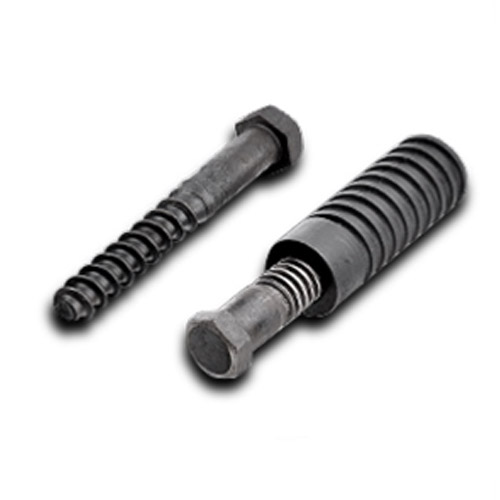

carriage bolts and nuts
ян. . 02, 2025 06:06 Back to list
carriage bolts and nuts
Understanding Carriage Bolts and Nuts Essential Hardware for Robust Construction
Carriage bolts and nuts are vital components in the world of construction and woodworking. Often overlooked, these fasteners play a crucial role in ensuring the stability and durability of various structures. In this article, we will explore what carriage bolts and nuts are, their applications, and why they are an indispensable part of building projects.
What are Carriage Bolts?
Carriage bolts are a type of fastener characterized by their round head, smooth shank, and a square section directly beneath the head. This unique design allows the square section to embed itself in the material, preventing the bolt from turning when the nut is being tightened. Carriage bolts typically come in different lengths and diameters, making them versatile for various applications.
The name carriage bolt originates from their historical use in the construction of carriages. However, their utility extends far beyond that. Today, these bolts are commonly used in wooden structures, furniture assembly, and even in metal-to-wood connections. Their design makes them especially suitable for applications where a flush surface is desired, as the round head sits above the surface without exposing any threads.
What are Nuts?
Nuts are hexagonal or square-shaped metal fasteners with a hole in the center. They are designed to be used in conjunction with bolts to secure two or more objects together. The interior of the nut is threaded, allowing it to fit snugly onto the thread of a bolt. When paired with carriage bolts, nuts provide a tight grip that ensures the stability of the assembly.
Nuts come in various materials, including steel, stainless steel, and nylon, providing options for different environmental conditions and load requirements. In many applications, locking nuts or washers are used in conjunction to prevent loosening over time due to vibrations or movement.
The Importance of Carriage Bolts and Nuts
1. Strength and Stability One of the primary reasons for using carriage bolts and nuts is their incredible strength. The smooth shank and square section allow for even distribution of stress, making them capable of holding heavy loads without failing. This is particularly important in construction projects where safety is paramount.
carriage bolts and nuts

2. Ease of Use Carriage bolts are designed to be easily installed. The unique shape of the head allows them to be inserted into pre-drilled holes, making assembly efficient. This ease of use makes them a favorite among both professional builders and DIY enthusiasts.
3. Aesthetic Appeal Since carriage bolts have a round head, they provide an aesthetically pleasing finish for applications where the hardware is visible. This is particularly important in furniture construction, decks, and landscaping projects where appearance matters.
4. Corrosion Resistance Many manufacturers offer carriage bolts and nuts in various coatings, such as galvanized or zinc-plated finishes, to prevent corrosion. This adds longevity to the hardware, making it ideal for outdoor use where exposure to the elements is a concern.
Applications of Carriage Bolts and Nuts
Carriage bolts and nuts are used in countless applications across different industries
- Woodworking They are commonly used in building furniture, decks, and other wooden structures due to their strength and stability. - Construction In larger projects, they are used to secure beams, railings, and other components that require a strong, non-rotating connection.
- Automotive Carriage bolts can also be found in the automotive industry for securing various parts within vehicles, ensuring they remain tightly fastened under the stress of movement.
- Outdoor Structures From fences to playground equipment, carriage bolts and nuts are preferred for outdoor projects due to their resistance to rust and corrosion.
Conclusion
Carriage bolts and nuts are small yet mighty components that significantly contribute to the robustness and stability of various structures. Their strength, ease of use, and aesthetic appeal make them a favorite in woodworking, construction, and multiple other applications. Understanding how to use these fasteners effectively is essential for anyone involved in building or repairing structures, ensuring safety and durability in every project. Whether you are a professional contractor or a weekend DIY warrior, ensuring you have the right hardware is key to achieving successful results.
Latest news
-
Premium Self Tapping Metal Screws: Strong & Easy Install
NewsAug.02,2025
-
Premium Fasteners Manufacturer | AI-Driven Solutions
NewsAug.01,2025
-
Hot Dip Galvanized Bolts - Hebei Longze | High Strength, Corrosion Resistance
NewsAug.01,2025
-
High-Strength Hot Dip Galvanized Bolts - LongZe | Corrosion Resistance, Custom Sizes
NewsAug.01,2025
-
Best Self Tapping Screws for Drywall - Fast & Secure Installation
NewsJul.31,2025
-
High-Strength Hot Dip Galvanized Bolts-Hebei Longze|Corrosion Resistance&Customization
NewsJul.31,2025

